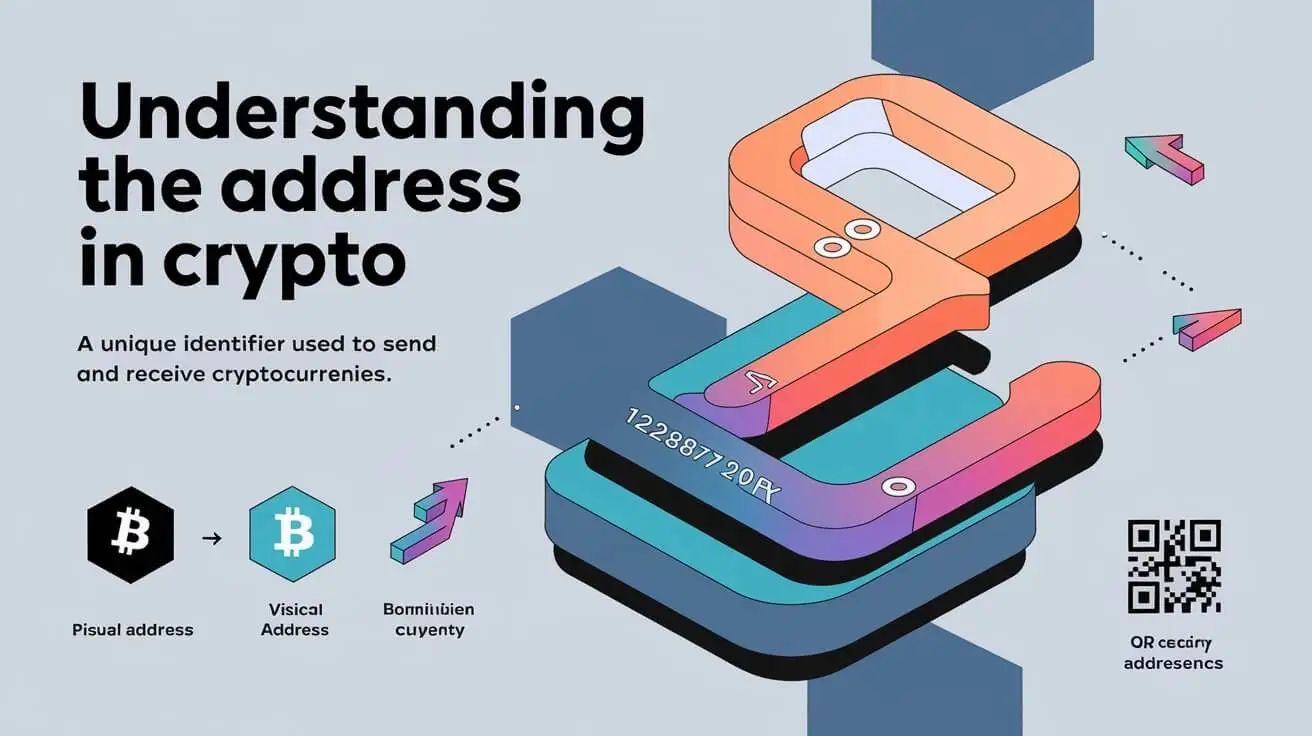In the world of digital currencies, an address in crypto is a fundamental concept that every user must grasp. It serves as the digital equivalent of a bank account number, allowing users to send and receive cryptocurrencies securely. Whether you’re new to the world of cryptocurrency or looking to refine your understanding, knowing what a crypto address entails is crucial for navigating this complex market.
What is an Address in Crypto?
An address in crypto refers to a unique string of characters that represents a destination for cryptocurrency transactions. Essentially, it acts as your public identifier within a blockchain network, allowing other users to know where to send you digital assets.
These addresses can be alphanumeric strings varying in length depending on the cryptocurrency; for instance, Bitcoin addresses are typically 26-35 characters long, while Ethereum addresses are exactly 42 characters. Each address is generated from a public key through cryptographic algorithms, ensuring security and anonymity.
When someone sends you cryptocurrency, they will need your crypto address. Unlike traditional banking systems, there is no central authority or intermediary involved, which provides a level of autonomy and privacy but also places the responsibility of transaction safety squarely on the user.

Types of Addresses in Crypto
Public and Private Keys
In addition to a public address, every user also has a private key. This private key is critical for accessing and managing your cryptocurrency holdings. Think of it as a password that allows you to control your funds. Never share your private key with anyone, as doing so can lead to loss of assets.
Address Formats
Different cryptocurrencies may have different address formats, such as:
- Legacy Address (P2PKH): Commonly used for Bitcoin transactions, starting with ‘1’.
- SegWit Address (P2SH): Starts with ‘3’, offering lower transaction fees.
- Bech32 Address (native SegWit): Starts with ‘bc1’, further optimizing transaction efficiency.
Step-by-Step: How to Create a Crypto Address
Creating an address in crypto is a straightforward process. Here’s how you can do it:
Choose a Wallet
- Select a wallet provider: There are various options available including hardware wallets (Trezor, Ledger), software wallets (Exodus, Electrum), and online wallets (Coinbase, Binance). Choose one that fits your needs based on usability, security features, and support for different currencies.
- Download and install: Follow the instructions provided by your chosen wallet service to download and install the application.
Generate an Address
- Create an account: If applicable, register for an account and follow the setup process, which often includes setting a strong password.
- Generate your address: Once your wallet is set up, you should automatically receive a public address. If not, look for an option like “Receive” or “Generate Address” within the app.
- Secure your private key: Ensure your private key is stored safely. Many wallets provide backup options, such as recovery phrases—make sure to save these in a secure location.
Sending and Receiving Cryptocurrency
- Using your address: Share your public address with others to receive cryptocurrency. For sending, input the recipient’s address followed by the amount you wish to transfer.
Common Issues and Troubleshooting
- Incorrect Address: Always double-check the address before sending. Crypto transactions are irreversible.
- Lost Access: If you’ve lost your private key, there is usually no way to recover your funds. Always back it up securely.
- Transaction Fee Confusion: Different networks may have varied fees. Always review the fees before confirming a transaction.
Conclusion
In summary, an address in crypto plays a pivotal role in the functioning of cryptocurrencies, acting as both a gateway for transactions and a means of personal identification in the digital economy. By understanding how to create and manage your crypto addresses, you can effectively navigate this exciting landscape while ensuring the security of your assets. Always remain vigilant about safeguarding your private keys, and conduct thorough checks before initiating any transactions. Embracing these practices will empower you to engage confidently in the world of cryptocurrency.

